
DAY THREE ONLY - Inform USA Conference Virtually Yours: Frontline Edition
- Registration Closed
This registration includes single day access for Thursday October 14th with sessions and activities aimed at expanding the skills and knowledge of frontline professionals and their supervisors. This event is perfect for individuals who fill or support roles that relate to Community Resource Specialists and Database Curators.
Any single day registration includes:
- Access to the live sessions and session recordings and materials that will be held on the day you choose
- Virtual Swag Bag
-
Contains 3 Component(s), Includes Credits
You are the Superhero of Data Quality. You are on the front lines every day, responding to different and sometimes dire needs from the people in our community, state, or across the country. They've called because they're out of options and they need your attention, empathy, and experience to help them take the next steps. And given all that, we are talking data quality? Yes! This session will help explain why it matters more than you might think, and will provide information and handouts to share with your colleagues back home.
You are the Superhero of Data Quality. You are on the front lines every day, responding to different and sometimes dire needs from the people in our community, state, or across the country. They've called because they're out of options and they need your attention, empathy, and experience to help them take the next steps. And given all that, we are talking data quality? Yes! This session will help explain why it matters more than you might think, and will provide information and handouts to share with your colleagues back home.
Key Takeaways:
- Review some real-world examples of data quality: when it's great, or horribly wrong
- Exploring Community Information Exchanges: data quality on steroids
- Learn how APIs use your data in real-time
- Reporting: what you enter drives decisions but only if the data can be used
- Learn the call handling techniques that can improve data quality without sacrificing the human connection
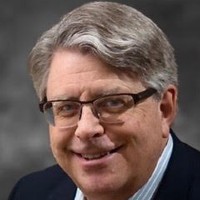
Dr. W. Douglas Zimmerman
VisionLink, Boulder, Colorado
Dr. W. Douglas Zimmerman is the President and CEO of Visionlink, one of the leading providers of community services, disaster relief, and data exchange solutions. His staff deploy systems that move 100's of millions of pieces of data every week, between different systems, using different standards, different technology, and different security standards. Zimmerman is most passionate about building systems of systems, and when done well, helping leaders and stakeholders create interoperable networks of data flows that reduce workloads, and leverage better outcomes. Zimmerman hails from Colorado, loves the mountains and skiing, and is happy his two kids are finally out of college! -
Contains 2 Component(s), Includes Credits
George Bonano, professor of clinical psychology at Columbia University, has learned through his intense studies of grief that there is no one way to cope that is best, and that resilience is an outcome...not an aspect of character or even a skill you acquire. Using Bonano’s research (with a healthy mix in of the Multi System Model of Resilience from some smart folks at Ryers University), we will explore more about how eating a bag of chips can be considered adaptive coping, how talking to friends about the problem can be maladaptive coping, and explore a 3X3 model of recognizing and even cultivating resources in your life that can lead you to a resilient outcome every time... on the path and in the way that feels best to you.
There are (what feels like) countless articles, videos, and even websites that tell you they have a mythical and magical list of things you can do or practice that will make you resilient (I’ll wait here a minute while you google it to verify my claim). Although those lists can be helpful in their own way, they can also be misleading by making you think that if you have checked all the boxes on the list...you are indeed resilient, which is actually not true.
George Bonano, professor of clinical psychology at Columbia University, has learned through his intense studies of grief that there is no best way to cope and that resilience is an outcome...not an aspect of character or even a skill you acquire.
Using Bonano’s research (with a healthy mix of the Multi System Model of Resilience from some smart folks at Ryers University), we will explore more about how eating a bag of chips can be considered adaptive coping and how talking to friends about the problem can be maladaptive coping. We will further outline and explore a 3X3 model (see takeaways below for additional details) of recognizing and even cultivating resources in your life that can lead you to a resilient outcome every time... on the path and in the way that feels best to you.
Please make sure you have your phone handy and a paper and pen for drawing out the model for your reference and to add personal notes and reflection. I also highly recommend having a snack on hand you enjoy :)
Key Takeaways:
- Understand what makes a coping mechanism adaptive or maladaptive (spoiler...it's not what you think)
- Outline the three mindsets linked to resilient outcomes that allow you to focus on the task at hand constructively.
- Outline “The Sequence” - 3 questions that help you determine what to do for yourself in a specific situation to get closer to a resilient outcome.
- Outline the three systems/layers of resilience (internal, coping and pursuits, external) and brainstorm a list of what resources you already have access to in those systems and which ones you could cultivate.
- Use the MSMR tool/app to scientifically and empirically evaluate the potential for your own resilient outcomes based on what resources in each system you have access to now.
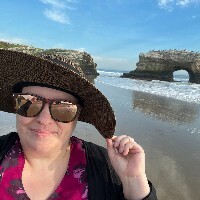
Chiara Cameron-Wood
Executive Director
211 Northeast Michigan
Chiara Cameron-Wood is graduated with an Associates Degree in Business, Bachelors in Psychology, and a Masters in Human Services with a specialization in Social and Community Resources. She has served her community in several nonprofit roles, including volunteer coordination with United Way of Northwest Ohio and Hannah's Socks, before moving to Utah and becoming part of the 211 program there. She started as a lead and quickly became the Program Director and then the Managing Director of 211 Utah. She held that position for 5 years before becoming a part of AIRS and now serves as the Executive Director. Chiara lives in Lehi, Utah, with her husband Jeff, near their 7 children and the stunning natural beauty of the Rocky Mountains and national forests. She enjoys traveling, writing, meditation, baking shows, musicals, shallow high school comedies, singing, and playing the piano whenever she can.
-
Contains 3 Component(s), Includes Credits
Working with challenging calls can be one of the most difficult tasks required of us as Community Resource Specialists. The reasons a call may be challenging can vary; as such, different approaches and techniques will be more or less effective depending on your caller type. In this workshop, we will discuss various categories of challenging calls, discuss approaches to tackling the challenges presented, and role-play several scenarios.
Working with challenging calls can be one of the most difficult tasks required of us as Community Resource Specialists. The reasons a call may be challenging can vary; as such, different approaches and techniques will be more or less effective depending on your caller type. In this workshop, we will discuss various categories of challenging calls, discuss approaches to tackling the challenges presented, and role-play several scenarios.
Key Takeaways:
- Different reasons calls may present as challenging
- Various categories of challenging calls
- Techniques to de-escalate whenever possible
- Working with racist or abusive callers
- When it’s time to let a caller go, and how to do so
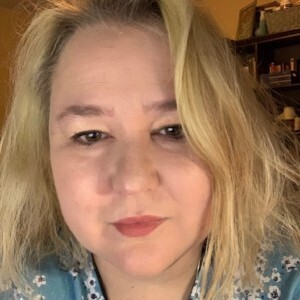
Julie Nurmi
Team Lead of the 211 Program - Canadian Mental Health Association – Edmonton
Canadian Mental Health Association, Edmonton, Alberta
Julie Nurmi is the Team Lead of the 211 Program - Canadian Mental Health Association – Edmonton. She has 9+ years of experience in answering 211, both front line and in a supervisory capacity. She is AIRS and CCW Certified and is the Lead Trainer for the 211 Program. She has a BA in Psychology (cum Laude) and has experience presenting on 211, further educating the public on the services offered.

Dagr Fjell
211 Community Resource Specialist
Canadian Mental Health Association, Edmonton, Alberta
Dagr Fjell (they/them) is an experienced 211 Community Resource Specialist who is both CRS and Crisis Worker Certified. After working for the Canadian Mental Health Association – Edmonton Region for several years in an administrative role, Dagr was drawn to the Distress Line program and became a volunteer in January 2017. When a role as a 211 CRS came up in January 2018, Dagr, being passionate about social justice and working with those in need, quickly applied for and was hired as a Permanent 211 CRS. Dagr has plenty of experience presenting in the past and is currently volunteering as a SMART Recovery group facilitator. In addition to these roles, in their spare time, Dagr is working on a book to help bring light to the struggles facing the homelessness population in Edmonton, Alberta. They enjoy writing, reading, walks in nature and have recently taken up cooking.
-
Contains 3 Component(s), Includes Credits
Our communities are becoming more open and diverse, with countless community members, clients, and staff identifying within the LGBTQ+ umbrella. But are our practices, both in and out of the workplace, helping create inclusive spaces? Now is the time to make sure we’re equipped to cultivate safe, welcoming, and inclusive environments for all diverse gender identities. In this training, we'll explore introductory definitions around LGBTQ+ identities, as well as pronouns and how to create inclusive workspaces for both staff and clients: what are gender-neutral pronouns, and how do I use them? What if I accidentally misgender a client or coworker? Why is it important to use expansive & inclusive language? All of these questions will be covered in this training, which seeks to provide an open space for vital conversations on gender inclusivity in the workplace and beyond.
Our communities are becoming more open and diverse, with countless community members, clients, and staff identifying within the LGBTQ+ umbrella. But are our practices, both in and out of the workplace, helping create inclusive spaces? Now is the time to make sure we’re equipped to cultivate safe, welcoming, and inclusive environments for all diverse gender identities. In this training, we'll explore introductory definitions around LGBTQ+ identities, as well as pronouns and how to create inclusive workspaces for both staff and clients: what are gender-neutral pronouns, and how do I use them? What if I accidentally misgender a client or coworker? Why is it important to use expansive & inclusive language? All of these questions will be covered in this training, which seeks to provide an open space for vital conversations on gender inclusivity in the workplace and beyond.
Key Takeaways:
- Understand basic LGBTQ+ and gender terminology and how it applies to our workplace
- Understand how to use gendered and gender-neutral pronouns
- Understand how to "correct" yourself if you accidentally misgender a client or coworker
- Understand the importance of creating a safe and diverse workplace.
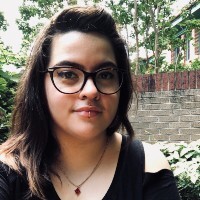
Gabriela Cano
Service Navigator
Community Service Council, Tulsa, Oklahoma
Gabriela Cano (they/them) is a Service Navigator at the Community Service Council in Tulsa, Oklahoma. They obtained a BA in Sociology from UC Berkeley and has also worked with LGBTQ+ youth, families recovering from child abuse & institutional marginalization, as well as survivors of domestic and sexual violence. They work to ensure all marginalized and institutionally oppressed communities have a seat at every social work agency's table.
-
Contains 3 Component(s), Includes Credits
Have you ever wondered why we perform active listening as de-escalation in a crisis and why this is effective? This presentation will outline what happens in the brain when a person is in a crisis state and why active listening can restore neocortical functioning. The presenter will discuss the evolution of a crisis state and the changes in the brain during the build-up to a crisis when a person is in an active crisis state. The presenter will review how to practice active listening with a caller and how this technique de-escalates and restores the brain to its "resting" state. Active listening builds rapport, establishes trust, and returns the caller to a state of de-escalation and rest. Learn why this tool should be the foundation of crisis call work!
Have you ever wondered why we perform active listening as de-escalation in a crisis and why this is effective? This presentation will outline what happens in the brain when a person is in a crisis state and why active listening can restore neocortical functioning. The presenter will discuss the evolution of a crisis state and the changes in the brain during the build-up to a crisis when a person is in an active crisis state. The presenter will review how to practice active listening with a caller and how this technique de-escalates and restores the brain to its "resting" state. Active listening builds rapport, establishes trust, and returns the caller to a state of de-escalation and rest. Learn why this tool should be the foundation of crisis call work!
Key Takeaways:
- Develop an understanding of crisis theory and model of a crisis state
- Understand what is occurring in the neocortical functioning of the brain in the development of a crisis state, active crisis state, and de-escalation of a crisis state
- Demonstrate how to utilize "active listening" tools
- Understand how active listening both builds rapport and de-escalates crisis callers and why this is a foundational tool
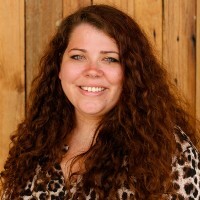
Sherrard Crespo
Outreach and Traumatic Loss Coordinator
VIA LINK, New Orleans, Louisiana
Sherrard Crespo is an LMSW currently under BACS supervision to obtain her LCSW license. She graduated with her Master's Degree from the LSU School of Social Work in May of 2017. Her professional background is highlighted by her work with suicide education, prevention, intervention, and postvention. Sherrard is currently employed with VIALINK in the position of Outreach and Traumatic Loss Coordinator where her current duties include: clinical oversight of VIA LINK's 24/7 call center, VIA LINK internal training on suicide risk assessment, community outreach and education on VIA LINK services as well as specialized skills and information on suicide, and facilitation of VIA LINK's three support groups: Survivors of Suicide Loss, NOLA Survivors, and “Real Talk” a support group for teens with suicide ideation.
-
Contains 3 Component(s), Includes Credits
Using the 211 LA County Taxonomy of Human Services to index or search for services can seem overwhelming. We’re here to show you the basics of using the Taxonomy effectively so your resource database will help connect people to the services they need.
Using the 211 LA County Taxonomy of Human Services to index or search for services can seem overwhelming. We’re here to show you the basics of using the Taxonomy effectively so your resource database will help connect people to the services they need.
Key Takeaways:
- Effectively use the 211 LA County Taxonomy to index resource data
- Create efficient resource searches for Community Resource Specialists and the general public
- How to find answers to your Taxonomy questions after the conference is over
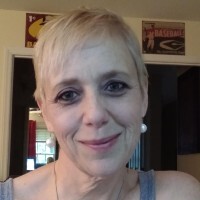
Laura "LJ" James
Director or Resource Strategy and Technology Integration
United Way of North Carolina, Cary, North Carolina
Laura James is the Director or Resource Strategy and Technology Integration for United Way of North Carolina. She has previously been the Resource Director for 211LA and holds both the Certified Community Resource Specialist and Database Curator certifications. She holds an MBA and Masters or Human Resources from Keller Graduate School of Management. She is a self-proclaimed resource nerd and after time spent as in the payments industry as well as corporate training, she has found her niche in the resource world, particularly in helping other people learn about tools and topics around all things resource.
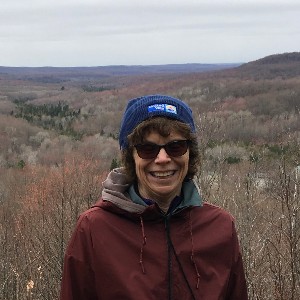
Kathy Sheridan
Statewide Quality Assurance Manager
MI 2-1-1, Lansing, Michigan
Kathy previously worked as a Resource Specialist for the United Way for Southeastern Michigan in Detroit, before moving to her current position as the Statewide Quality Assurance Manager for Michigan 2-1-1. With over 15 years in the field of Information and Referral services, Kathy is a Certified Resource Database Curator and holds a Master’s in Public Administration.

